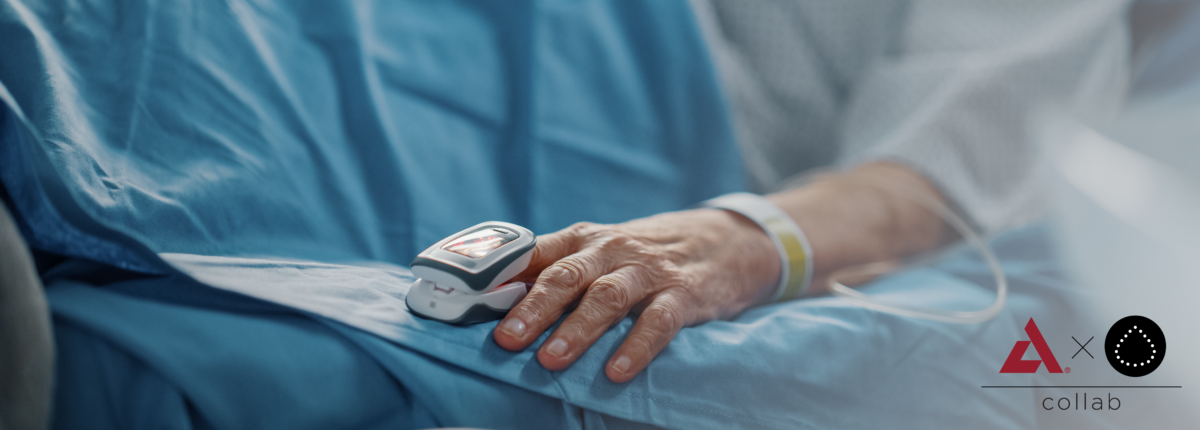What are diabetes complications and what causes them?
This educational content is brought to you by the ADA x BT1 Collab.
The following transcript has been edited for length and clarity.
Ginger Vieira: Welcome to Collab Conversations with the American Diabetes Association and Beyond Type 1. I’m Ginger Vieira, and joining me today is Dr. Marlon Pragnell, vice president of Research and Science at the American Diabetes Association. Thanks for joining me.
Dr. Marlon Pragnell: Thank you. Great to be here. Thank you.
I’d love to pick your brain about diabetes complications and what causes them, and of course, what we can do to prevent them as well. Diabetes complications. Can you tell me what are they? People are told that phrase when they’re diagnosed. You got to prevent complications. We hear it everywhere. Can you explain what they really are?
For many people, diabetes complications occur as a result of high blood glucose, high blood sugar. (Some people can still develop complications even with managed blood sugars.) So if a person is diagnosed with diabetes, the key thing is the blood glucose sugar is increased. That sugar actually damages the cells in the body, damages them in different ways. Primarily we think the damage could be more…we’re thinking about blood vessels get damaged, nerves get damaged, and so on, and that could lead to a number of different issues in different parts of the body.
For example, first of all, you could think of kidney disease, for example, kidney damage. High blood glucose can lead to kidney damage. The kidneys have this complex filter filtering blood, getting rid of all the things that you don’t need in the blood, retaining things you do need. The kidneys are incredibly important organs to keep ourselves in balance, and high blood glucose actually damages the kidney and makes it less able to create a filter. Actually the filter breaks down, and what you see, actually, one of the key features of seeing whether you have damage to your kidneys is that they start to become less good filters.
So for example, what normally goes through the kidney comes back to the body, actually starts going out of the body. You pee it out. So you can see, for example, protein leaking through and coming out in your urine. For example, a person could, if you go to pee and all of a sudden you see lots of bubbles in the water, for example, that’s lots of protein coming out.
Really?
Yeah, yeah. I mean, it’s like bubbles in the water because of the amount of protein that comes out. So the thing is that high blood sugar can damage your kidneys and really, a challenge with that, the kidney, is actually this is invisible.
But kidney complications occur very, very slowly and all of a sudden then, after a number of years, it gets really bad. And then to the point where you might have to go on dialysis. All that can be prevented. I think the numbers are, for example, in terms of the number of people with diabetes, 30% of people with diabetes here in the States have some level of kidney damage.
Oh, wow.
Some level. That’s not really serious, it’s kind of early stages. But people are at some stage of kidney damage, because of the high blood sugar. You want to avoid that. And the best way to avoid that obviously is to better manage your blood glucose levels. What we’re seeing though is that the higher we go in blood glucose levels, the greater, the more damaged the kidneys, and more the rapid progression to kidney failure, kidney damage. That can all be avoided by improving blood glucose management.
Okay. So we have kidney disease. What’s another common diabetes complication?
Eye disease. The thing about eye disease, again, the same thing. Sugar, high blood glucose can damage your eyes, and as I mentioned in the kidney, sugar damages blood vessels, also damages nerves as well.
And so over time, what can happen is that the blood vessels in the eye can get weak and damaged and start to bulge and almost leak as well, and that can create damage in the back of the eye.
And then also because the body is always trying to compensate for damage, you can also start getting new blood vessels forming in the eye and that creates further problems where it can lead to detached retina, for example, things like that. So yeah, the eye is a very sensitive area. There are certain parts of the body that are more susceptible than others to complications.
So high blood sugar levels are damaging.
Exactly. So for example, another part for nerves is your hands and your feet, right? Because the high blood glucose damages the nerves there, the nerves then start to stop conducting information that well, and so you might have a situation where you might not feel your feet that well. You might have reduced sensation. And also blood vessels as well can reduce the healing of ulcers. You can damage your toes, not even know you’ve damaged them, for example. And so for that, obviously at that stage, you want to make sure you take good care of your feet and so on.
But again, the same thing comes all back to reducing, delaying these complications by managing your blood sugar. Another thing, too, is that I talked about nerves, you can have nerves of the periphery in your hands and your feet. But we also have nerves in your body, in your torso, right? We have nerves that control your intestines, your gut, your digestion.
So you know when you eat food, for example, the nerves are also very much involved in propelling food through the intestinal tract, moving it along. If you have nerve damage or modification through high blood glucose, those don’t work as well. So you don’t really get this kind of nice, regular passage of food through the intestines. It gets blocked up, slowed. And that can make it difficult for diabetes, because a lot of times when you’re managing your blood glucose, you want to plan around giving yourself insulin around mealtime. So if you don’t have that regular guaranteed flow of food through the intestines, that makes it difficult to decide on how much insulin to give yourself.
And so going back a little bit to the cause of complications and high blood sugars, we know through decades of research that maintaining an A1C below 7 percent can generally prevent or hugely delay the development of most diabetes complications.
Actually one thing that’s interesting is that keeping a low A1C could be important, but one thing that’s surprising is that each increase in percentage of A1C has such an increasing risk of complications. It’s almost exponential. It’s not linear. It actually gets worse and worse and worse the higher you go. So if you target 7 percent ideally or lower, you’ll be largely reducing the risk of complications, but every percentage point you go above that, you start to kind of increase your risk of kidney damage, increase of eye damage, cardiovascular disease as well. I haven’t even mentioned that.
Every step of the way, at every step of the way of diabetes, every time you’re able to better manage your blood glucose levels, you’re taking a huge stop towards delaying progression of complications, whether it be retinopathy, whether it be kidney disease, whether it be cardiovascular disease.
Wherever you are in your state of diabetes, you can do something about it. I’ve been involved in complication research for many years now, and the drugs that are developing that can help protect your kidneys, and so on, are very exciting. But the most potent drug you can use is all the changes in your diet and exercise and lifestyle habits…at every stage of your diabetes journey.
And what’s good is you don’t have to do this alone either. You look at our website, first of all, if you think you’re at risk, just take our diabetes risk test, for example. But then we have so much information on how you can find support to develop healthy lifestyles. So critical. I think that, coming back to that whole thing I said before, an ounce of prevention is worth a pound of cure. People have so much in what they can do, what you can do, people can do to prevent progression of diabetes, at whatever stage they’re at.
Right. Thank you. That’s hugely important as we each go about our day.
It’s important because it’s life-saving.
Well, thank you so much, Dr. Pragnell, for digging deeper into complications and how much we can do to protect ourselves.
Okay, thank you.





